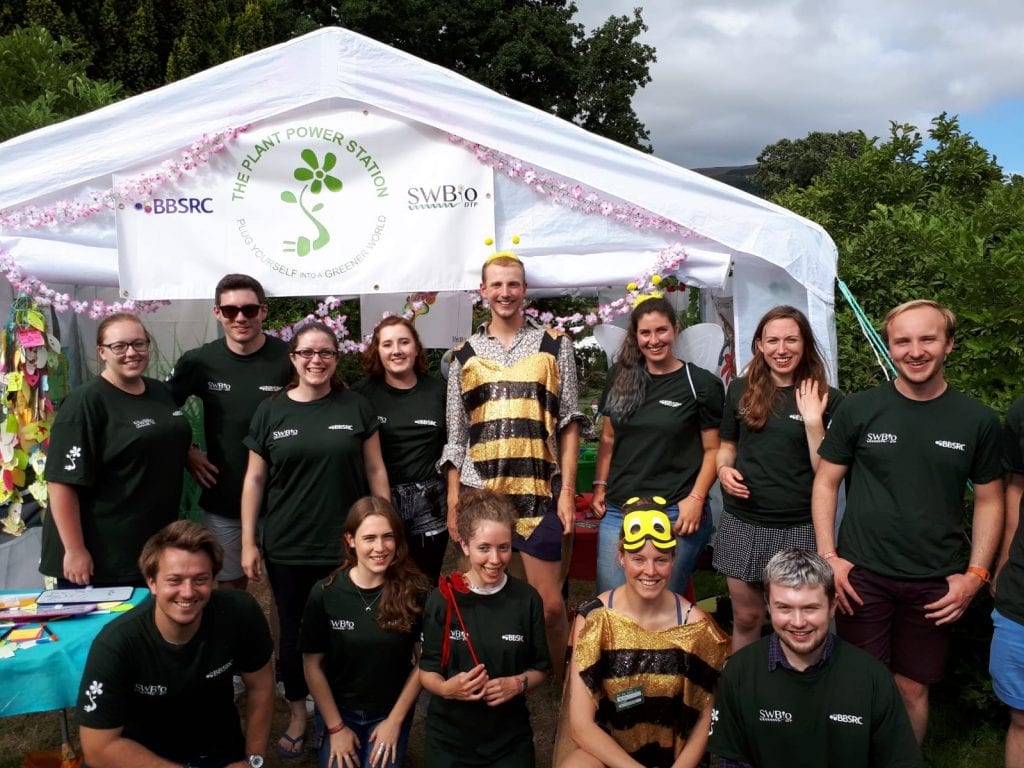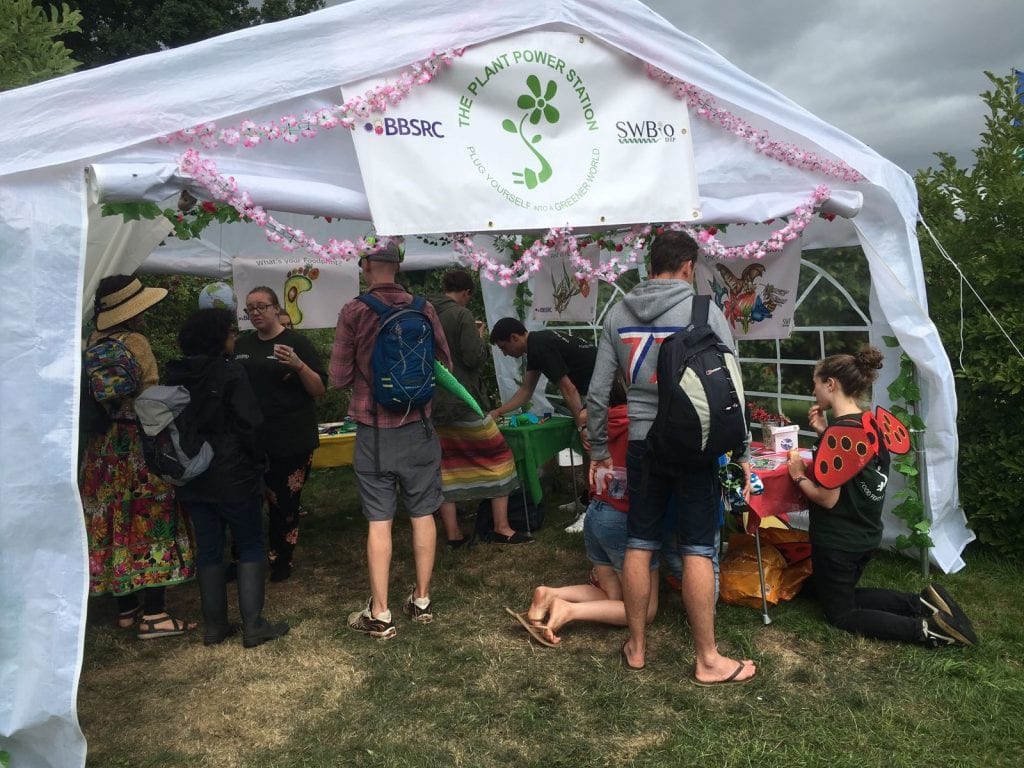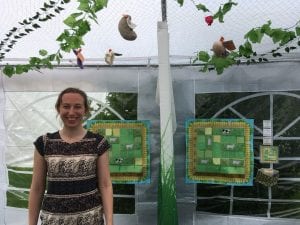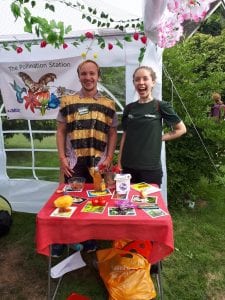The ‘Plant Power Station’ was a public engagement and scientific outreach project presented at the 2018 Green Man Festival. This followed on from a similarly successful project held the previous year, that attracted around 3000 participants over the four days.
Like last year, the project was developed by a group of PhD students from across the BBSRC-funded South West Biosciences Doctoral Training Partnership (SWBio DTP). The event aimed to raise public awareness of the importance of plants, pollinators and ‘plugging yourself into a greener world’.
The students, who are all completing PhDs within the Agricultural and Environment Research theme, designed, directed and executed the project which was headed by Bethany Eldridge (a second year PhD student at the University of Bristol) and Dr Dan Bebber (Senior Lecturer in Biosciences at the University of Exeter). The event was a collaborative effort with students participating from across the universities of Bath, Bristol. Cardiff, Exeter (the ‘GW4 alliance’), alongside Rothamsted Research.
The ‘Plant Power Station’ was designed on the premise of four different interactive games or ‘substations’ (further details below) which focused on how plants ‘power’ our world; participants were encouraged to visit all four substations and received a body stamp for each station they completed. Substation One was a game designed to explain how and why flowers are pollinated by a range of pollinators (i.e. bees, wasps, bats, and beetles). Substation Two involved designing the perfect pest or pest control strategy, followed by a head to head battle to see who would win the season’s harvest! Substation Three aimed to educate the public about the environmental footprint of the different foods they consume, and how they could reduce their “foodprint”. Substation Four was a twist on the classic game “Battleships”, but instead the aim was to destroy your neighbour’s farm with a range of parasites at your disposal!
Members of the public were also encouraged to ask questions about “anything and everything” science related – “no question is a silly question” and to start discussions and debates, some of which went on for at least 40 minutes (the longest was 90 minutes)! The feedback from people of all ages was exceptionally positive, with many people exclaiming that the stand was “really fun”, “eye opening”, and “a great learning experience”. With such great feedback it is really not surprising we noticed families returning multiple times over the four days. Many older participants noted how “plugging yourself into a greener world” is really not a simple task, with many actions bringing positives in one area while bringing negatives in others. Hence, the public clearly saw value in research, such as that funded by the BBSRC, to answer fundamental questions we don’t yet have the answer to.
Dr Dan Bebber (Agriculture and the Environment Research Theme Champion) said that “once again the SWBio DTP students showed their fantastic ability to entertain and educate the public at one of the UKs biggest family festivals”. The students document how the project was a “unique opportunity”, that “never disappoints”, and “so rewarding”, where “everyone who came learnt something new”.
Longer explanations of the different substations:
Pests vs Pesticides – The world’s food crops are the setting of an ongoing arms race between pests and pesticides. Players will become a pesticide scientist or crop pest and battle for the handsome prize of a field of wheat. Using 3D-printed models, players will build their pest or pesticide to adapt and become the ultimate destroyer or defender as they also battle a changing climate, disease and human impacts. It’s basically Mr Potato Head meets Top Trumps!
Parasite Battleships – A novel spin on the classic game ‘Battleships’, your aim is to sabotage your opponent by infecting their livestock with parasites, while protecting your own herd. With the risk of limited natural immunity and parasites evolving to increasingly resist control strategies, who will win the battle?
What’s My Foodprint? – We don’t often consider the vast resources required to produce and ship the food found in our supermarkets. At this stall participants will battle to assemble a meal with the lowest environmental impact – who will make to the top of our leader board?
Pollination Station – Did you know without bats there wouldn’t be tequila? Although bees are important, they are not the bee-all and end-all. We also rely on a huge number of other pollinators for our foods. Could you guess what pollinates our crops, flowers and foods given a variety of multisensory clues?
Written by Tom Chaloner, SWBio DTP student
Some quotes from the students:
“It was really encouraging to see so many children and parents engaged with the activities at The Plant Power Station – I really did feel as though everyone who came learnt something new”
“Taking science to the streets (or the hilly expanse of South Wales) is educational for both public and researcher. I’d highly recommend outreach at Green Man.”
“Green man is beautiful place full of inquisitive people, I couldn’t think of a better place to chat to people about science!”
”It’s so rewarding to be able to engage kids and adults alike in our research and to see what a hunger for knowledge there is. A great way to remember why we study the things we do and to have fantastic and thought-provoking conversations.”





